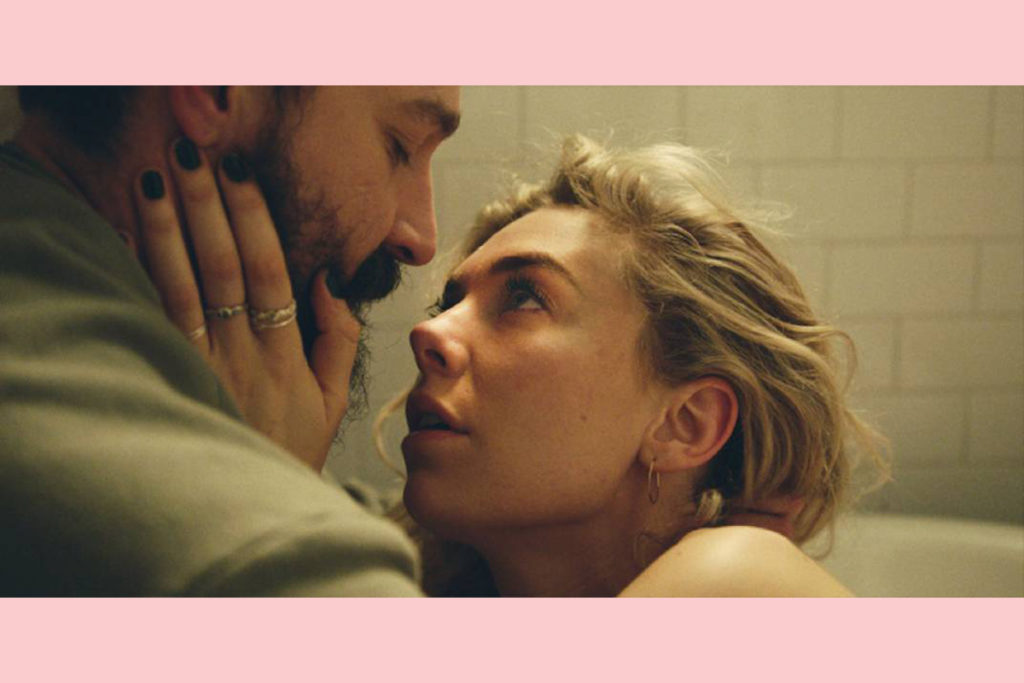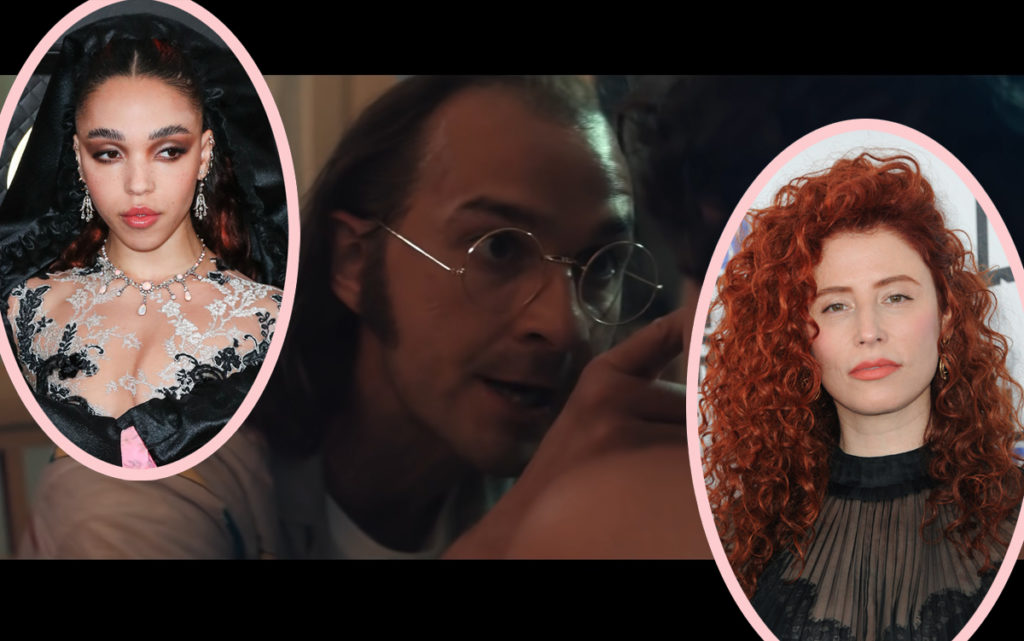FKA twigs is speaking further on her experiences of abuse.
The singer recently came forward alleging abuse by her ex-boyfriend Shia LaBeouf, filing a lawsuit against the actor in conjunction with another of his exes, Karolyn Pho. The Disney alum has denied some of the claims (although he admitted to being “abusive” to “everyone around” him), but the UK native went on record with the New York Times detailing many of his alleged behaviors.
In a new interview for the podcast Grounded with Louis Theroux, the Magdalene artist revealed more details and provided further insight into her claims. As to why she decided to come forward with her experiences at all, she said:
“It is something in society that’s a really big problem and it’s really common, but for some reason we don’t talk about it.”
Later, she added:
“I don’t think we really talk about, as a society, the healing of leaving and how much work then has to be done to recover and get back to the person you were before.”
Considering those in abusive relationships are all the more vulnerable during COVID lockdowns, the 33-year-old felt it all the more important to be vocal about her personal experiences, that they might reach someone in a similar situation.
Read on for more:
Contents
The initial stages of the relationship
An abusive relationship often isn’t troubling from the very start, which is why twigs wanted to “raise awareness to the signs of abuse.” She shared:
“The first thing is an intense honeymoon period at the beginning, which is a signifier of how brilliant things can be. It sets the benchmark for if you behave well, and if you fulfill all of the requirements and meet the rules, and all these things of the abuser, it can… be great. Intense lovebombing, big displays of affection, lots of love words, happy times, great dates, you’re amazing, put on a pedestal. And that’s very common at the beginning of an abusive relationship.”
Controlling behaviors emerge
Next came “the grooming, the pushing of your emotional and spiritual boundaries.” In twigs’ experience, this manifested in jealous, controlling behaviors on Shia’s part. She recalled:
“For me it was being nice to a waiter or being polite to somebody that could be seen as me flirting or want to engage in some sort of relationship with somebody else when I’m literally just ordering pasta and being polite.”
She continued:
“ can be really isolating. I was told that I knew what he was like, and if I loved him I wouldn’t look men in the eye. So that was my reality for a good four months towards the end of the relationship, that I wasn’t allowed to look men in the eye. … So then I’m looking down all the time, and you know that does a lot to someone’s confidence. … I think for me, I started to really isolate myself. So I stopped talking to my friends, I didn’t talk to my family, I just was living a very regimented and contained life that I felt got me in the least trouble.”
The “affection quota”
Twigs also elaborated on an aspect of the NYT piece, that she was given a “quota” for showing her Honey Boy co-star physical affection. She explained:
“I had a quota that I had to meet, that would change. It was like touches or looks or kisses, that his previous partner apparently met this number very well, so I was inadequate compared to a previous partner of his. And I had to get the touches and the kisses correct. But I never exactly knew, kind of, what the number exactly was, but it was essentially around 20 a day.”
If she didn’t continuously reinforce her “devotion,” she said:
“He would start an argument with me, berate me for hours, make me feel like I was the worst person ever. Like, I genuinely thought that I was so cold and so awful, and such a terrible girlfriend.”
Sleep deprivation & accusations
One way the performance artist would allegedly terrorize his girlfriend was to interrupt her sleep. She went on:
“He would wake me up in the night and accuse me of all sorts of things. Accuse me of staring at the ceiling and thinking about ways to leave him. Accused me of masturbating. Accused me of not wanting to be with him. Accusing me of wanting to be with somebody else. It would be always, I’d say between like four and seven in the morning.”
This behavior continued to affect twigs for long after she had finally left him. She admitted:
“I’ve just been … trying not wake up between three and seven in a panic attack. … I am there now … but for a long time anything that woke me up in the night, even if it was just my dog or a noise outside or needing to go to the bathroom, it could trigger a really intense panic attack, because I was left with PTSD from that.”
The final straw
Asked about a “conclusive” moment where she realized she had to leave, twigs remembered:
“After the incident driving back from the desert, where he was threatening to crash the car unless I said I loved him and ended up basically strangling me in public at a gas station, and nobody did anything. That was a really low moment for me because I felt like I would never be believed. … Nobody stepped in.”
She went on:
“And I think for me that was a real moment of like, okay, no one is going to believe me — because I’m the type of person, if I saw something happening, I will go and help somebody, that’s just who I am. But to have people see me being treated that way and not do anything, I felt really disheartened.”
Luckily, she had the strength to reach out for help. She said:
“I remember going back to where I was staying, and calling an abused women’s helpline, and I literally just Googled like, ‘free women’s abuse helpline USA,’ you know, I just called the first one that came up. And her reaction to me was so serious, and she was like, ‘OK, from what you’ve said, it feels to me like you’re in an unsafe place. Does your abuser know where you are? Can you get to a safe place? Who have you told about this? Is there somewhere else that you can stay?’ … And it felt really like, whoa, like, somebody that I don’t even know, that doesn’t even know that I’m a singer, or anything like that. Somebody is taking this so seriously, and wants to get me somewhere safe, and that was a really massive wake-up call.”
Why she stayed & why she left
Among many poignant moments in the interview, twigs voiced a deeply important thought about how our society views people in abusive relationships. She remarked:
“People often ask the victim or survivor, ‘Why didn’t you leave?’, instead of asking the abuser, ‘Why are you holding someone hostage through abusive behavior?’ It’s a fair question for you to ask me, but it puts a lot on me. It puts a lot on victims and survivors.”
For herself, she shared:
“One answer that I’ve given is that it genuinely felt impossible. I felt so controlled and I felt so confused and I felt so low, beneath myself, that the fear of even leaving and knowing I had all this work to do to get back to just feeling OK, it was completely overwhelming.”
The artist has come a long way since then, bringing her lawsuit public and speaking openly about her experiences. She reflected:
“All I can do is just think about myself when I’m 50 years old I’ve got kids, I think about what I want to have stood for. This is something that was completely unexpected. I never thought something like this would happen to me… When I’m older, if I have a daughter, I want to be able to say, ‘This thing happened to me. And I dealt with it.’ It’s a big thing to heal publicly and have to do it in front of everyone, but I can do it. I’m a big girl and I can do it.”
It takes a lot of strength to be this open about such difficult experiences. We appreciate FKA twigs being so honest and vulnerable about her story.
Related Posts
Source: Read Full Article






